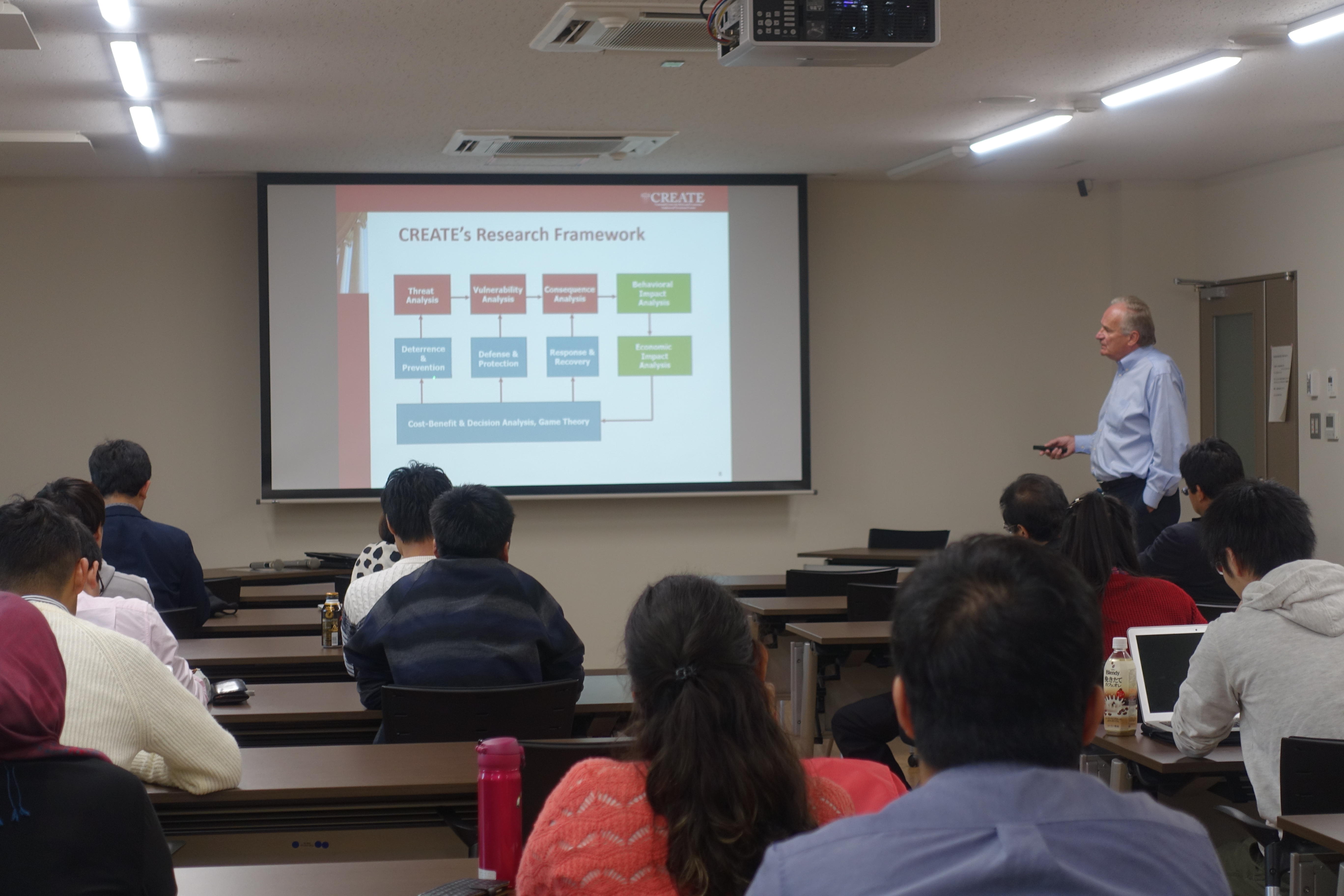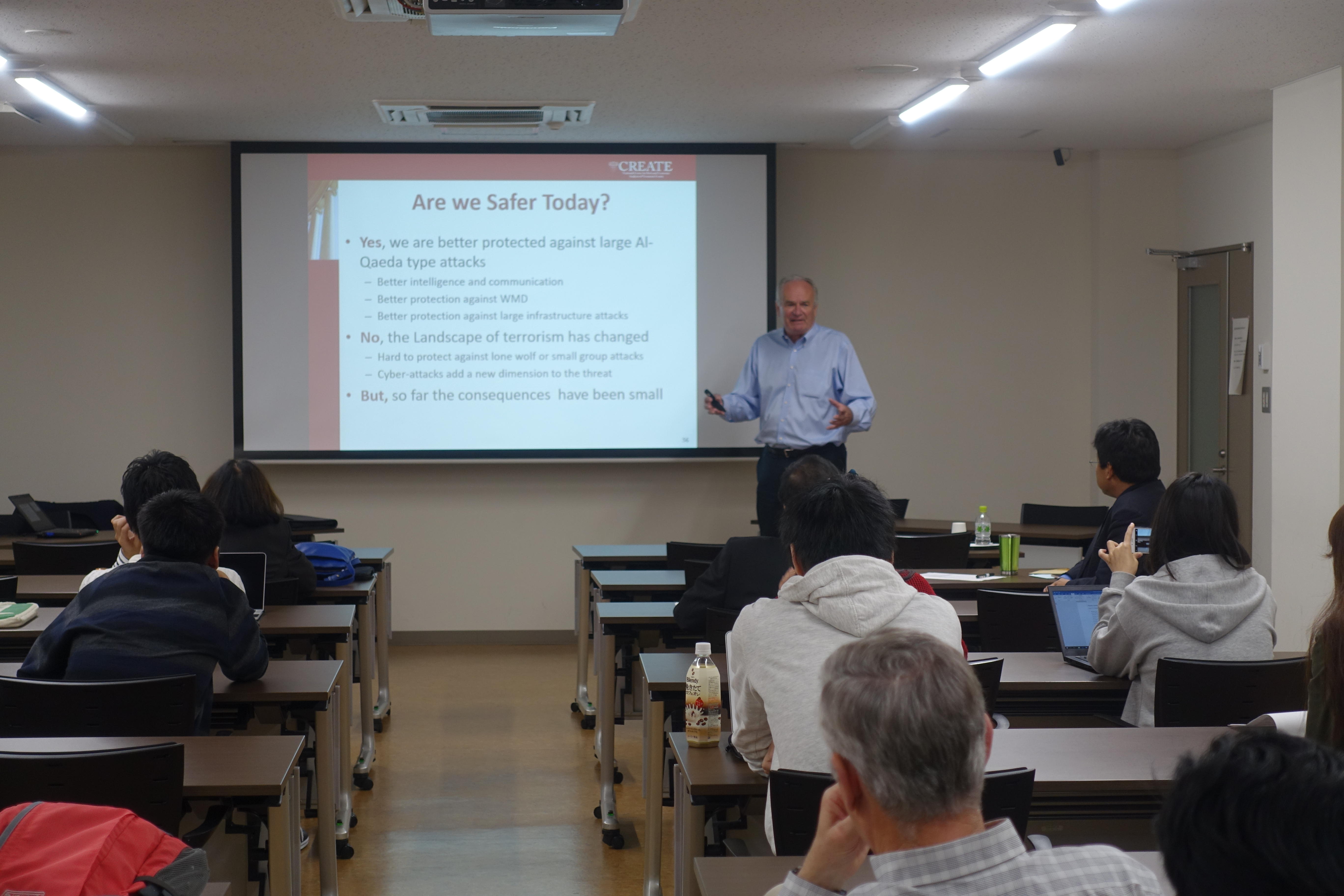Special Lecture on Decision and Risk Analysis to Improve Homeland Security by Prof. Detlof von Winterfeldt, Director, CREATE, USC
During Prof. Detlof von Winterfeldt's visit to Japan, he visited the Disaster Prevention Research Institute (DPRI), and the Global Alliance of Disaster Research Institutes (DPRI), Kyoto University, Uji Campus to deepen relationships between the three entities - DPRI, GADRI and CREATE. At this occasion, he offered to give a special lecture on decision science, especially in the field of multi‑criteria decision making and terrorism issues.
Prof. Detlof von Winterfeldt is professor of Systems Engineering at the University of Southern California, and the co-founder and director of the National Center for Risk and Economic Analysis of Terrorism Events (CREATE) which is the first university-based center of excellence funded by the US Department of Homeland Security.
He was also former director of International Institute for Applied Systems Analysis (IIASA) from 2009 to 2012. Prof. von Winterfeldt's research interests are in the foundation and practice of decision and risk analysis applied to the areas of technology development, environmental risks, natural hazards and terrorism, areas in which he has published widely. In 2000 he received the Ramsey Medal for distinguished contributions to decision analysis from the Decision Analysis Society of INFORMS. In 2009 he received the Gold Medal from the International Society for Multicriteria Decision Making for advancing the field and in 2012 he received the distinguished achievement award from the Society for Risk Analysis.
The lecture was held at DPRI/GADRI, Kyoto University, Uji Campus-Room S-519D on 1 November 2017.
Tittle of the Lecture: Decision and Risk Analysis to Improve Homeland Security
Abstract:
The presentation described the origins and research activities of the U.S. National Center for Risk and Economic Analysis of Terrorism Events (CREATE) and then focused on the use of decision and risk analysis with three examples: Bioterrorism risk analysis, behavioral and economic studies of the consequences of the 9/11 attacks on the world trade center, and managing the risks of surface to missile attacks on commercial airplanes. The general conclusions of 14 years of research were summarized and an answer was given to the question: Are we safer today than before 9/11?








